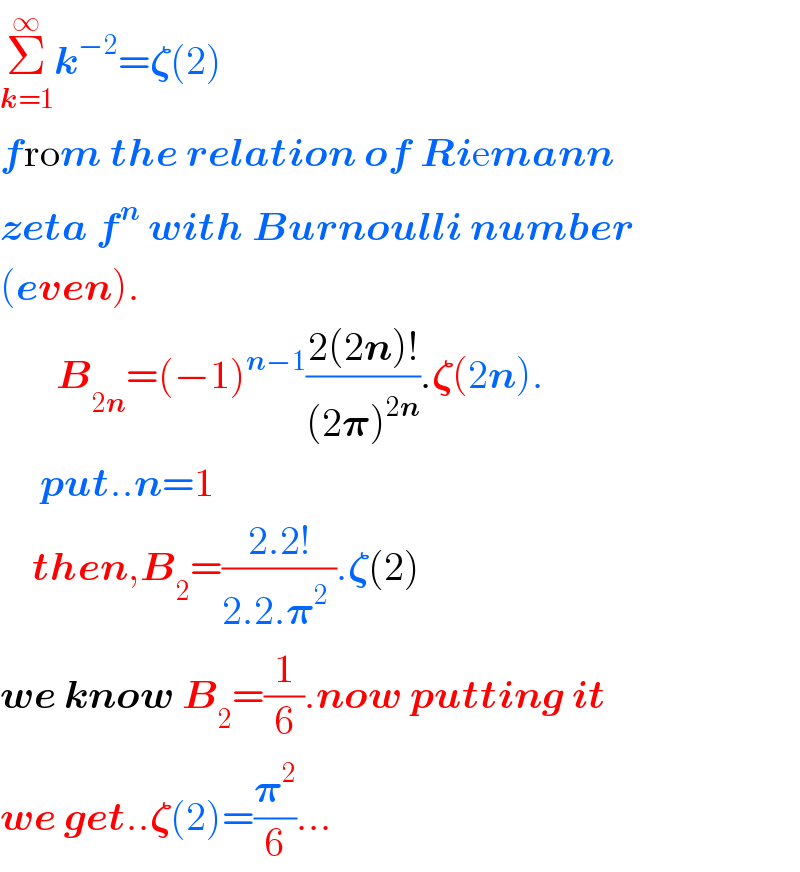
Question and Answers Forum
Question Number 96667 by Ar Brandon last updated on 03/Jun/20

Answered by Sourav mridha last updated on 03/Jun/20

Commented by I want to learn more last updated on 05/Jun/20

Commented by Sourav mridha last updated on 05/Jun/20
![This is not justified by this formula because: B_(2n+1) =0 where n∈N only odd number B_1 =−(1/2) exist. generel form of B_n : B_n =−((n!)/((2𝛑i)^n ))[Σ_(m=1) ^∞ ((1/m^n )+(1/((−m)^n )))]](Q96916.png)
Commented by I want to learn more last updated on 06/Jun/20

Answered by Rio Michael last updated on 03/Jun/20
![i′ve always Wanted to Get this proof..and here′s what i fell on. Σ_(k=1) ^∞ (1/k^2 ) = (π^2 /6) first let s = arcsin x hence ∫_0 ^(π/2) s ds = (π^2 /8) also ∫_0 ^1 ((arcsin x)/(√(1−x^2 ))) dx = (π^2 /8) since arc sin x = ∫_0 ^1 (1/((√(1−x^2 )) )) dx = x + (x^3 /(2 ×3)) + ((1 × 3 x^5 )/(2 ×5 ×5)) +... substituting we get: ∫_0 ^1 ((dx/(√(1−x^2 ))) ∫(dx/(√(1−x^2 )))) = ∫_0 ^1 [x + (x^3 /6)((dx/(√(1−x^2 ))))+...] realise that : ∫_0 ^1 (x^(2n+1) /(√(1−x^2 ))) dx = ((2n!!)/((2n + 1)!!)). since we get all odd powers, (π^2 /8) = Σ_(k=1) ^∞ (1/((2n−1)^2 )) if we define x = Σ_(k=1) ^∞ (1/k^2 ) dividing by 4 , we get the equation: x = (π^2 /6) = Σ_(k=1) ^∞ (1/k^2 ) please guys check.](Q96674.png)
Commented by Ar Brandon last updated on 03/Jun/20
I'm lost.��
Commented by I want to learn more last updated on 06/Jun/20

Commented by I want to learn more last updated on 06/Jun/20

